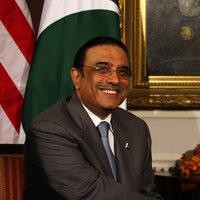The Pakistani Supreme Court ruling on Feb. 25, 2009, that effectively upheld a ban on former prime minister Nawaz Sharif from contesting elections could signal yet another sabotage of democracy in Pakistan. Sharif's electoral ban quells any possibility that his PML (N) might mount a political challenge to President Asif Ali Zardari in the 2013 elections. The ruling also disqualifed Sharif's brother, Shahbaz Sharif, from holding political office, and dissolved his government in Punjab. Zardari quickly imposed Governor's Rule in Punjab for two months, despite the fact that Sharif's PML (N) enjoys a majority in the provincial legislature. Zardari then responded to public skepticism and mass protests against the brothers' disqualification by clamping down on the protesters, justifying his actions as a countermeasure to Sharif's alleged "war on the presidency." Initially a member of Zardari's ruling coalition, the PML (N) quit the government in August 2008, after complaints that Zardari had not delivered on several pledges which had formed the basis of the party's alliance with Zardari's PPP formation. Reinstating the Supreme Court judges deposed by former president Pervez Musharraf was foremost among them. Nawaz Sharif wanted the sacked judges reinstated with full powers, while President Zardari sought to curtail their authority in order to rule out any clash between the judiciary and the executive branch. Zardari feared that the amnesty granted him by Musharraf from graft charges could come under legal scrutiny by deposed Chief Justice Iftikar Chaudhry. Both sides considered their disagreements part of the political process, rather than an irreconcilable rift in the coalition, limiting the fallout from their initial parting of ways. But in an attempt to consolidate his position, President Zardari has pushed Pakistan's democracy close to its breaking point. Political uncertainty now looms as all the concerned parties have adopted a confrontational posture. The demand for reinstating the judges was already gaining momentum, with a nationwide protest march by lawyers planned for March 9. Nawaz Sharif had been expected to participate in the march, which under the changed political circumstances could be transformed into a wider political demonstration against Zardari. Any attempt by Zardari to stall the march under the guise of maintaining law and order would gravely threaten the prospects of democracy in the country. Other democratic freedoms are also in peril, as evidenced by Pakistani Information Minister Sherry Rehman's threat to resign if the government imposed press censorship.
Pakistan’s Democracy in Peril

